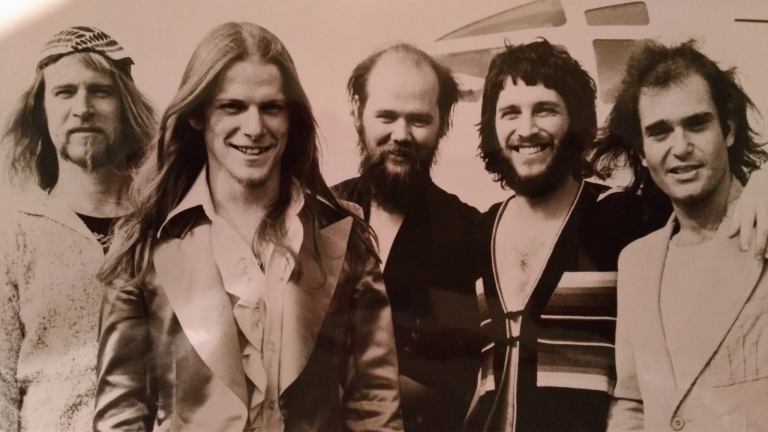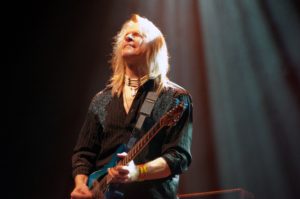
The Dixie Dregs have reunited their 1977 lineup and are touring the country with a stop at The Paramount in Huntington on March 15.

The group, originally called Dixie Grit in 1970, was founded by Steve Morse and Andy West. In 1973, the pair combined with Allen Sloan and Bart Yarnal at the University of Miami’s School of Music, and Rod Morgenstein quickly replaced Yarnal after a surfing accident.
This tour combines the talents of Morse on guitar, West on bass guitar, Sloan on violin, Morgenstein on drums and Steve Davidowski on keyboards for the five’s first musical reunion since the release of the album “Free Fall” in 1977.
While Morse and Morgenstein have remained with the band throughout its 45-year history, Sloan, now a doctor, left in 1981 and returned for a four-year stint in 1988, West left in 1989 and Davidowski was with the group from 1976 to 1978.
As the only living keyboard player from any Dixie Dregs albums, Davidowski was “the
missing link,” Morse said. Once band manager Frank Solomon, West and Morgenstein convinced Sloan to return as well, the reunion was set.
“It’s kind of like having a time capsule,” Morse said. “The influences of the ’60s and ’70s combined to make this sound you’re going to hear, and those forces can never be duplicated because people have different influences today with the internet and multi-channel entertainment.”

Morse said in an interview the group has already begun the tour and is clicking well on stage.
“We’ve already done the reuniting,” Morse said. “We’re off to the races and it’s going well. We’ve had great crowd response. Everybody is full of energy for us.”
Morse said the night will be a mixture of old and new songs, including a few that are on albums but have never been performed live.
Morse said West created a fan poll for people to request different songs for the tour, and many people requested the classics as well as a few deep tracks.
The band, which was all instrumentals until “Industry Standard” in 1982, which Morse said he learned to love during his time in Miami.
“I was studying classical guitar and jazz, so I had those hitting me at the same time,” Morse said. “Orchestra kind of bridged the gap between jazz and classical with that fusion sound, and I thought that was a great jumping off point. I had more of a tendency to go toward rock instrumentals with blue grass and classical influences.”
The group, which has mostly dissolved in the last decade, has kept a steady fanbase throughout the member changes and periods of down time.
“Pure and simple, it is the beautiful compositions and the energy we all put into performing them,” West said. “This is music that can really take you places that are unique yet still familiar in the sense that there are strongly recognizable sonic landscapes that fuse many styles and feelings. It is truly ‘fusion’ in the most positive sense of the word.”






